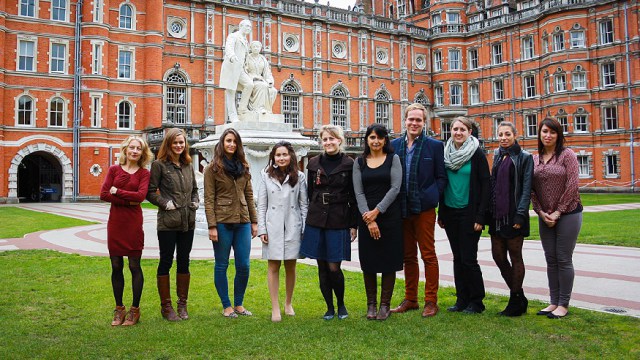Can an International Student Study and Work in Japan?
The Japanese government allows international students to work in Japan upon graduation. As long as you have an approved working visa and have graduated from a university in Japan, you may be able to work in Japan legally.
If you’re an international student looking to study in Japan, you might be wondering if you have to be fluent in Japanese before arriving. The answer is no. It’s definitely possible for a new student without any prior knowledge of the language to complete a degree abroad in Japan, but there are some things you should know before you make your move.
The fact is that studying in Japan is much easier to obtain than working there as an international student. But if you plan ahead and follow the right steps, you may be able to manage to get a part-time job while also going to school.
Can International Students Study and Work in Japan?
The short answer is: YES! But it’s not easy to get a work visa as an international student in Japan. Working while studying is only allowed if you’re on an ‘exchange’ program like one found in the IES Abroad World Guide country information. Other than that, it takes a lot of planning and effort to gain permission to be able to work in Japan while you’re a student here.”
In the previous article, I talked about the possibility of International students in the USA studying and working, this is totally different from Universities in Japan. In Japan, you can get a part-time job while you are still studying. Every school has a designated office whose duty is to announce to you different job openings and career paths for International students. To buttress this, the school enrolls you into Japan’s pension system because you must get a part-time job.
Also, the amount of scholarships in Japan is endless, it only depends on your academic performance and quality recommendation from your supervisor.
The work and study permit for international students called the “Designated Activities Visa,” is available to foreigners who have entered Japan to study at a school or university as full-time students or permanent teachers. It can also be issued to foreign employees working on assignments here. If you receive a visa as a student or teacher, you can study and work in Japan.
If you want to work then you shouldn’t exceed a max of 28hrs per week. The same thing is applicable if you want to work in the lab as a TA/RA position then you can earn 250,000 yen ($1,600) for 2 quarters (a quarter is 3months so we have 4 quarters in a year).
Additionally, we have Prof personal RA tips ($400) for TA/RA students if you are good at running deep learning models in the laboratory and good with paper formatting.
Finally, you can shorten your 2years master’s program to 1year so that you can cut down on school fees cost (this you have to discuss with your research advisor) but for Ph.D., you have 4 years maximum.
You can only be disturbed about fees if you have not secured a part-time job yet or yet to grab one of the big whale scholarships (MEXT, Rotary Yoneyama) to the University.
The living expense here is around 50k yen (400$) monthly (based on plenty management).
Language: All courses are taught in English but you must learn Japanese.
How Can an International Student Study and Work in Japan?
My personal experience as an international student working and studying in Japan; I have JASSO (Japan Student Scholarship Organisation) around 48k yen (380$) monthly then I got a TA position with a special Prof TA tip…I work in the lab as a part-time job. Usually, you have April to target MEXT (Around 145k yen monthly for 2years ) but the scholarship is something you must apply for before getting admission. It works just like Jamb UTME where you fill your first choice and second choice university. If you are among the selected applicants, MEXT will forward all your details to the University and you will be available 1year after to start your program (Works for Undergraduate and research students). On the other hand, you have December to target Rotary Yoneyama (140k monthly for 2years). They are part of my Ph.D. plans.
FAQs
Can international students study in Japan?
Yes, international students can study in Japan. Japan has a diverse range of educational institutions offering programs in various fields, including universities, colleges, and vocational schools. These institutions welcome students from around the world to pursue undergraduate, postgraduate, and research programs.
Can international students work while studying in Japan?
Yes, international students in Japan are allowed to work part-time while studying. However, there are restrictions on the number of hours they can work per week during the regular academic semester. Typically, students are allowed to work up to 28 hours per week and full-time during scheduled vacation periods.
What types of jobs can international students do in Japan?
International students in Japan can engage in a variety of part-time jobs to support themselves during their studies. Common options include working in restaurants, retail stores, cafes, tutoring, administrative roles, and more. Some students also find opportunities to work as language tutors or assistants in research projects.
Are there any restrictions on international students working in Japan?
Yes, there are some restrictions on international students working in Japan. Students must obtain permission from the Immigration Bureau and their university or college before engaging in any part-time work. Additionally, there are limits on the number of hours they can work per week to ensure they can balance their studies effectively.
Can international students in Japan apply for post-graduation work opportunities?
Yes, international students who have completed their studies in Japan may be eligible to apply for post-graduation work opportunities. The Japanese government offers various visa options for graduates seeking employment in Japan, including the Post-Study Work Permit, which allows graduates to work full-time for a specified period after completing their studies.







